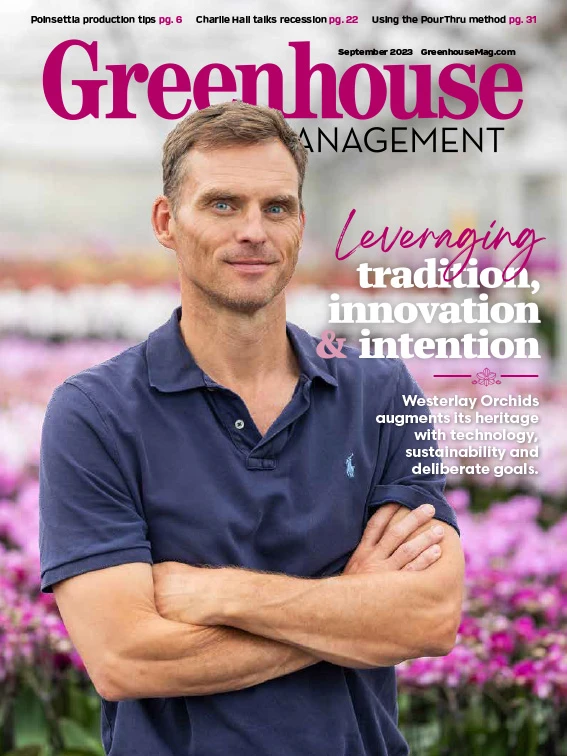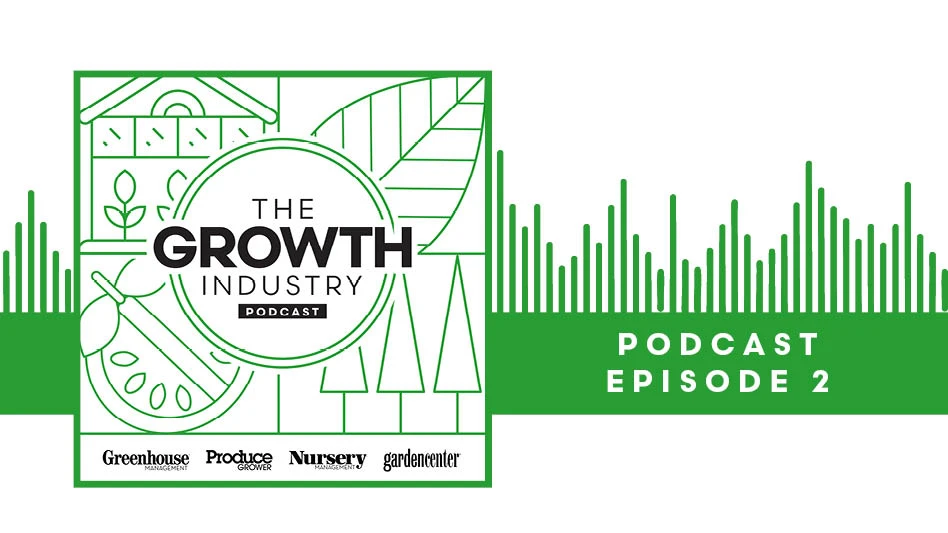

Greenhouse Management: A bit over a year ago, you were named the director of the University of Connecticut Office of Outreach & Engagement. What has that role involved?
Rosa E. Raudales: The Office of Outreach and Engagement is a newly created office that's trying to centralize the idea that the university should be integrating their research and bringing their knowledge to the community. But we don’t just bring knowledge to the community. There's also a lot of knowledge out there in our community. In my extension work, I meet with growers, and they know better than I do about farming. I might be specializing in one topic, but they have a better sense of the big picture and what happens on a day-to-day basis. We're trying to emphasize that there is a lot of knowledge in the community that we should take advantage of. When we interact with communities, we're not just coming in with the attitude of “we're here to teach you,” but more so “we're here to learn and partner with you.”
GM: What are you researching right now?
RR: One thing we’re doing right now is trying to understand how microbes, both the good ones and the pathogens, are spread throughout a production system. We’re going to greenhouses to map and collect samples from the surfaces, the water and the plants at different growth stages and different production stages. Then we do DNA sequencing and then we identify which plant pathogens and organisms are there.
Another thing we're interested in is irrigation water quality. One of the big questions that I've always tried to work on is, can we use lower quality water to irrigate crops? In hydroponics, we are evolving from thinking that we need the freshest, cleanest water possible. Now we’re asking if it’s better to have water with a rich microbial load because that might prevent pathogens from building up or reduce pathogen or disease incidents. One of the things that we’ve done is recycle water through multiple cycles and compared it with fresh water solutions as well, and we looked at how microbial populations change over time and how plants responded to disease. One of the things that we saw in hydroponic lettuce was that, after the fourth cycle, plants presented less disease. And we think it’s related to microbes because that’s the only thing that was different.
GM: What’s motivated your research throughout your career?
RR: The actual issues that people have in the industry. I've always tried to work in applied research on things that will have an impact on growers and that have a relatively short turnaround, and then I match that to the skills that I have. One of the tricky things about being a researcher is that you don't want to get too comfortable with your skills, because otherwise you end up doing the same thing over and over. For example, with the microbiome work, it was kind of a natural progression from what I was doing before, because I've been working with pathogens and water for a long time. I’m finding that sweet spot where there’s a question I'm interested in and that I think I have the skills to answer, but at the same time, I can progress and advance what I know.

Explore the September 2023 Issue
Check out more from this issue and find your next story to read.
Latest from Greenhouse Management
- pH Helpers
- Society of American Florists accepting entries for 2025 Marketer of the Year Contest
- Sustainabloom launches Wholesale Nickel Program to support floriculture sustainability
- American Horticultural Society welcomes five new board members
- Color Orchids acquires Floricultura Pacific, becoming largest orchid supplier in U.S.
- American Floral Endowment establishes Demaree Family Floriculture Advancement Fund
- The Growth Industry Episode 3: Across the Pond with Neville Stein
- 2025 State of Annuals: Petal power








